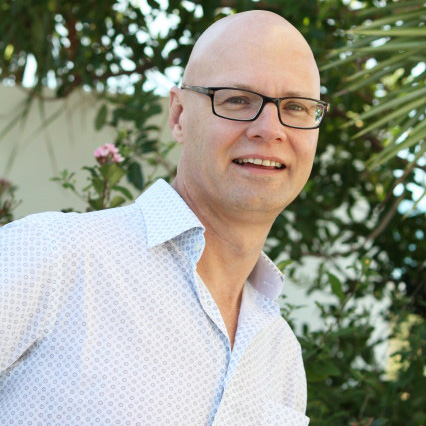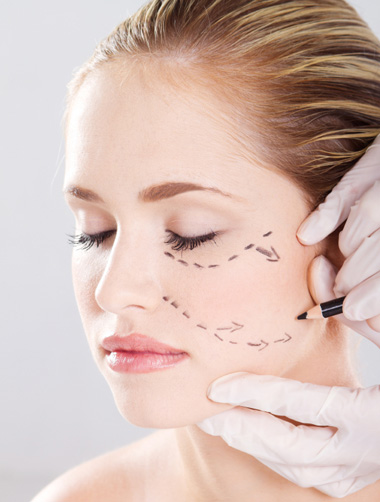WHAT IS COSMETIC SURGERY?
Cosmetic surgery is a medical procedure that is performed to reshape a person’s body and to change their appearance.
Cosmetic surgery is normally performed on an otherwise healthy part of the body, to change its appearance in a way that is desirable to the person.
As a type of surgery, cosmetic surgery procedures require recovery time, healing and appropriate care.
TYPES OF COSMETIC SURGERY
Cosmetic surgery encompasses a wide range of techniques to reshape different parts of the body.
Some of the more common procedures are outlined below.
- Eyelift (blepharoplasty) – The area around the eyes is lifted and excess fat and skin is removed from the eyelids and eye area
COSMETIC SURGERY TECHNIQUES AND PROCEDURES
Cosmetic surgery consists of a wide variety of techniques and procedures. Some of these techniques are briefly explained below.
Eyelift (blepharoplasty) – Upper eyelid Blepharoplasty usually involves removal of excess skin and sometimes underlying fat. Lower eyelid blepharoplasty may be performed either through the skin of the lower lid or from behind the eyelid. Learn more about the three eyelift approaches.
THE RISKS OF COSMETIC SURGERY
Cosmetic surgery does carry some risks and it’s important to be aware of them before deciding to go ahead with a procedure.
Possible risks include problems with the anaesthetic, surgical complications, excessive bleeding, scarring, infections or slow healing.
To minimise the risks of cosmetic surgery, ensure you work with an experienced, qualified medical professional and be sure to ask your doctor about potential complications during your consultation .
ALTERNATIVES TO COSMETIC SURGERY
There is a range of non-surgical alternatives to cosmetic surgery available.
Chemical peels, laser peels, fractional laser, skin needling and microdermabrasion change the surface of the skin, creating a more even appearance.
The appearance of wrinkles can be altered through laser resurfacing, dermal fillers, anti wrinkle injections and laser photorejuvenation.
Uneven pigmentation and increased blood vessels can be altered with Intense Pulsed Light, fractional laser, Picosure laser and the Excel V laser.
The body can also be contoured using laser body contouring and microlipoinjection.
A non-surgical treatment may be more appropriate for your needs and your dermatologist can guide you in selecting the most relevant procedure.
WHO CAN PERFORM COSMETIC SURGERY?
Cosmetic surgery can be performed by either a cosmetic dermatologist, or a cosmetic surgeon, or a plastic surgeon.
Any doctor can legally perform many cosmetic surgery procedures, without further surgical training once they have completed their initial medical training.
By contrast, surgeons are required to undergo an minimum of 5 years of additional specialist training and study, to obtain a specialist qualification.
Working with an experienced, fully-qualified and accredited cosmetic dermatologist ensures the best possible outcome for your cosmetic surgery procedure. You can read more about our dermatologist, Dr. Russell Hills and learn more about his years of experience on our website.
HOW TO CHOOSE A GOOD COSMETIC dermatologist
To find the right cosmetic dermatologist for your procedure, make a list of likely options, asking friends and family, or your local GP or hospital for recommendations.
Keep in mind that the cost of your procedure should reflect the complexity of the procedure and the skill and experience of the surgeon, to ensure that you’re happy with the results.
Before you make your choice, ensure that you check your cosmetic dermatologist qualifications, accreditations and experience. Ask about the number of types of procedures they have performed previously.
Organise an initial consultation so that you can ask lots of questions, and find a dermatologist with whom you feel comfortable. Good communication is essential for a positive experience.
Ensure that you choose a cosmetic dermatologist who will provide you with good support both before and after your surgery to ensure the best possible outcome.
QUESTIONS TO ASK BEFORE YOU HAVE COSMETIC SURGERY
Once you’ve chosen your cosmetic dermatologist, it’s important to understand what’s involved with your procedure and what to expect.
Here’s some questions you can ask your dermatologist to ensure that you’re prepared.
- Which procedure is most likely to give me the results I want?
- Is this procedure suitable for me?
- What alternatives to this procedure are available?
- What exactly is included in the procedure?
- What do I need to do to ensure the best possible results?
- What will you do to minimise scarring from the surgery?
- Are there any other potential side-effects from this procedure?
- What risks are involved with this procedure?
- What kind of discomfort will I experience following the procedure?
- What kind of support will I need during my recovery?
- How long will it take me to recover?
- How much time will I need to take off work?
- Where will the surgery be performed?
For more information and advice on your cosmetic surgery options, please contact us.
 Dr Russell Hills is an experienced cosmetic dermatologist based in Brisbane, Australia and is a member of the Academy of Facial Plastic Surgery. Dr Hills also has extensive experience in MOHS surgery for skin cancer removal, and is the principal Dermatologist at Aesthetix.
Dr Russell Hills is an experienced cosmetic dermatologist based in Brisbane, Australia and is a member of the Academy of Facial Plastic Surgery. Dr Hills also has extensive experience in MOHS surgery for skin cancer removal, and is the principal Dermatologist at Aesthetix.
Dr Hills regularly lectures on cosmetic and laser surgery and skin cancer removal, and has numerous publications on these topics. He is a member of a number of Australian and American medical associations, and attends local and international conferences to stay up-to-date with the latest approaches in cosmetic medicine.

Adherence to the information on this site will not ensure successful treatment in every situation and will not ensure specific results in the individual patient. Although complications may be rare, there are certain inherent risks connected with surgical procedures that should be discussed with the dermatologist. This Website contains very general information and any procedures mentioned in it should be discussed in detail with your dermatologist at the time of consultation.